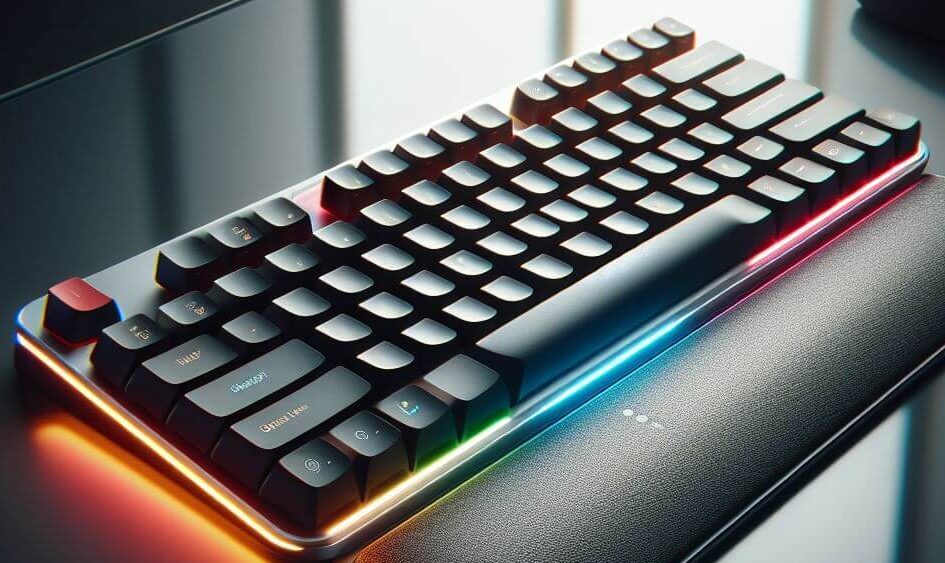Microsoft Introduces Innovative AI Shortcut Key

- January 6, 2024
- allix
- AI in Business
Tech giants are introducing a new feature to the standard computer keyboard by integrating a button dedicated to an artificial intelligence virtual assistant as part of Microsoft’s significant keyboard revamp, the first of its kind in the past 30 years. From this month onwards, several fresh PC models equipped with Microsoft’s Windows 11 will showcase a dedicated “Copilot” key, providing users with instant access to Microsoft’s AI-driven chat software. Microsoft’s strategy to persuade PC makers like Dell to embed an AI-centric button into their notebooks underscores their efforts to leverage their symbiotic relationship with OpenAI, the creators of ChatGPT, and establish itself as the main portal for harnessing generative AI innovations.
Despite the fact that a majority of individuals now access the internet and countless AI tools through mobile devices rather than desktops, this introduction acts as a significant starting point in what’s predicted to be a fiercely competitive year for tech entities as they strive to surpass one another in AI capabilities, still grappling with the ethical and legal consequences. For instance, last month, The New York Times filed a lawsuit against both OpenAI and Microsoft, claiming that platforms such as ChatGPT and the previously known Bing Chat are violating copyright laws by reproducing news content.
This keyboard transformation signifies Microsoft’s most noteworthy change since the 1990s when the company implemented the recognizable Windows button. Despite the evolution of Microsoft’s logo design, this key has become an integral component of keyboards designed for Windows systems over the last three decades.
The new AI-focused key will bear the distinctive Copilot insignia and will be situated adjacent to the spacebar. It will take the place of the right “CTRL” key on certain models, while on others it might substitute a function or menu key.
Microsoft isn’t alone in personalizing keyboard keys. Apple was a trailblazer in this aspect during the 1980s with its “Command” key featuring a unique square loop design (which sometimes included the Apple emblem). Google incorporated a search key into its Chromebooks and ventured into AI-specific keys with a voice assistant button on the Pixelbook, which is no longer in production.
Microsoft commands a much larger segment of the PC marketplace through its software licensing partnerships with third-party manufacturers such as Lenovo, Dell, and HP. Data from market research company IDC shows that around 82% of all desktops, laptops, and workstations utilize Windows, in contrast to Apple’s 9% market share for its proprietary operating system and just above 6% for Google’s alternative. Dell Technologies was the front-runner in embracing the Copilot key, showcasing it on their latest XPS notebooks released on Thursday.
Microsoft has kept tight-lipped about which other manufacturers will be incorporating the Copilot feature beyond their own range of high-end Surface devices. They hinted that some of these partners are anticipated to reveal their latest creations at the upcoming CES tech expo in Las Vegas.
Categories
- AI Education (37)
- AI in Business (62)
- AI Projects (85)
- Research (57)
Other posts
- The Complete List of 28 US AI Startups to Earn Over $100 Million in 2024
- Keras Model
- Scientists Develop AI Solution to Prevent Power Outages
- NBC Introduces AI-Powered Legendary Broadcaster for Olympic Games
- Runway Introduces Video AI Gen-3
- Horovod – Distributed Deep Learning with TensorFlow and PyTorch
- Research Reveals Contradictory Positions Of AI Models On Controversial Issues
- Using AI to Understand Dog Barking
- The Autobiographer App Uses Artificial Intelligence To Record Your Life Story
- Chainer – Dynamic Neural Networks For Efficient Deep Learning
Newsletter
Get regular updates on data science, artificial intelligence, machine



